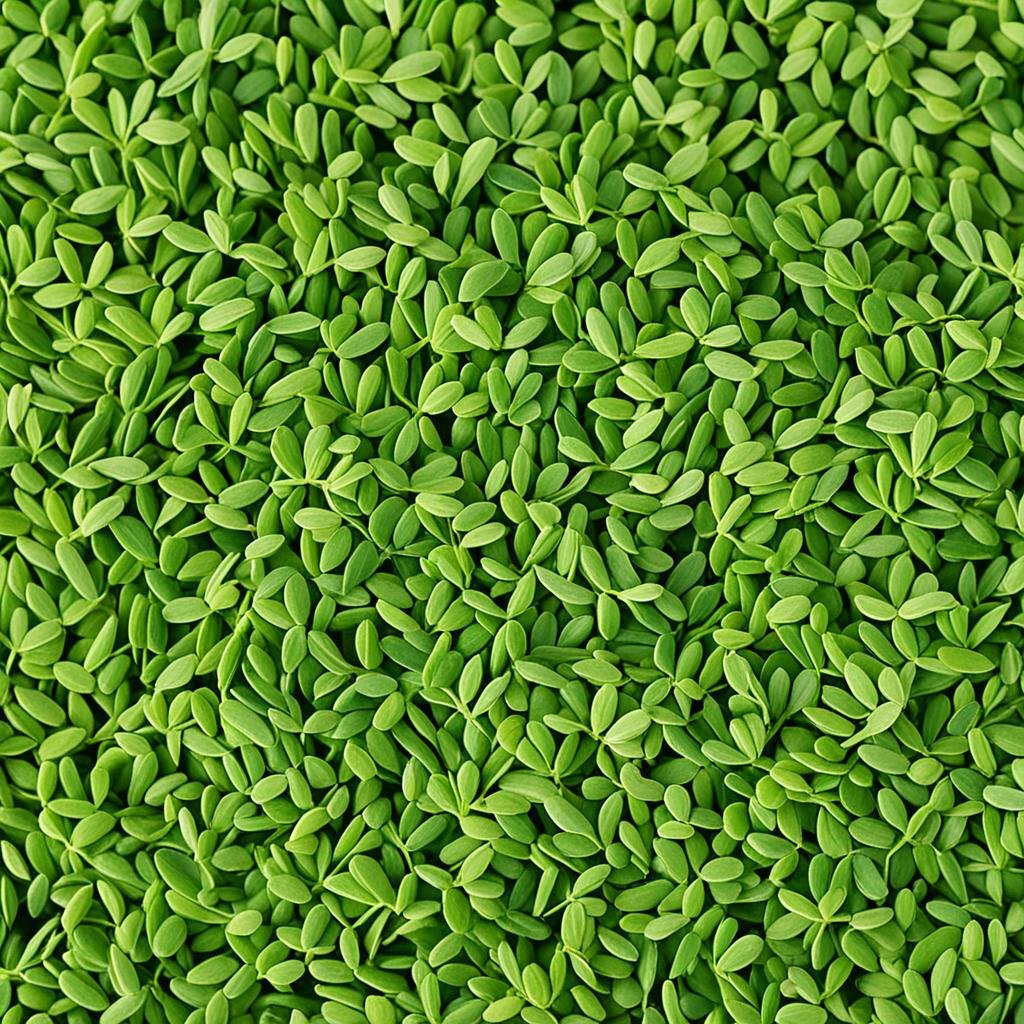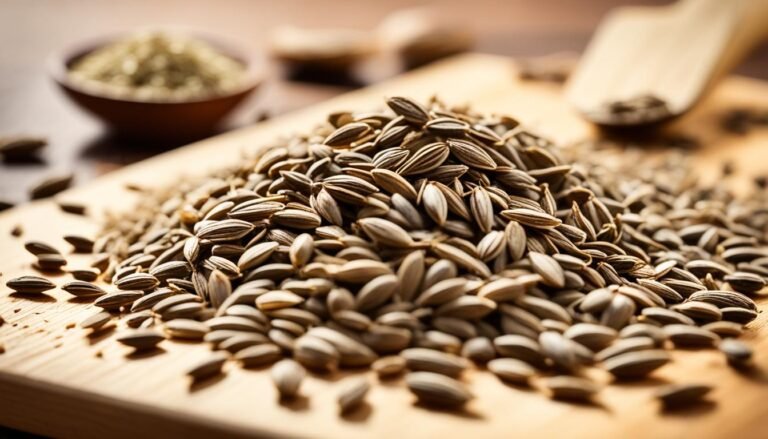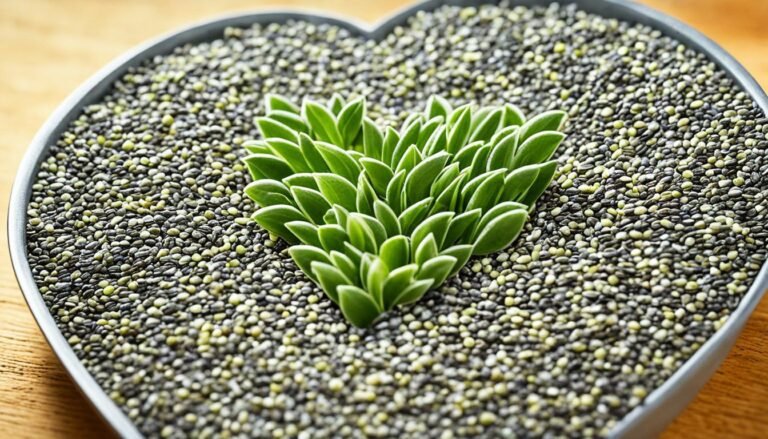Fenugreek Body Odor: Causes and Solutions

Fenugreek’s unique smell, like maple syrup, can also make you sweat more. This is due to a compound called sotalone in the seeds. It’s found in sweat and urine, making body odor a concern for some. Despite its health perks, this odor can be a problem. We’ll look into why and how to deal with it.
What is Fenugreek?
Fenugreek is an annual plant used in South Asian and Middle Eastern cooking. Its seeds and leaves have a compound called sotalone. This compound smells like maple syrup and can be found in sweat and urine of those who eat it.
Fenugreek’s Distinctive Aroma
The strong maple smell is often found in places that process fenugreek seeds. It can even spread through the air, causing complaints from nearby people. This smell is a key feature of fenugreek, known as the “fenugreek maple syrup aroma.” The fenugreek sotalone compound is behind this unique scent, which is also found in the fenugreek seed and leaf odor.
Fenugreek comes from the Mediterranean, western Asia, and southern Europe. In India, people eat its leaves as a vegetable. In other places, the seeds are used in cooking and for health reasons. These seeds help with digestion, diabetes, heart health, and weight control.

People also use fenugreek on the skin for pain, swelling, and skin issues like eczema. But, the fenugreek body odor can sometimes be a side effect of eating this herb.
Causes of Fenugreek Body Odor
The maple syrup-like scent from fenugreek comes from a compound called sotalone. This molecule is in the seeds and leaves of the plant. It makes the plant smell unique. When you eat fenugreek, this sotalone goes through your body without changing. This is why it shows up in your sweat and urine.
People who eat a lot of fenugreek, like those taking supplements to help with milk production, notice this strong smell more. This sweet odor might be a problem for some, as it can be seen as unpleasant or hard to deal with.
The sweet smell of fenugreek can also come from the fenugreek maple syrup scent the plant naturally has. This smell is a key part of the fenugreek plant. It adds to the body odor of those who eat it.
The fenugreek body odor cause is not a health issue. It’s just the plant’s special smell. Knowing why this happens can help people deal with any issues related to the fenugreek sotalone compound. It can also help with personal hygiene and how they interact with others.
fenugreek body odor
Have you ever noticed a maple syrup smell coming from your body after eating fenugreek? You’re not the only one. This smell is a common side effect of eating fenugreek. It happens because of a compound called sotalone in the plant.
Sotalone is found in the seeds and leaves of fenugreek. It makes your sweat and urine smell like maple syrup. How strong the smell is can change from person to person. It depends on your metabolism and how much fenugreek you eat.
Even though the smell from fenugreek is not harmful, it might make you feel uncomfortable. Luckily, there are ways to lessen this smell and feel better about it.
Causes of Fenugreek Body Odor
- The compound sotalone, present in fenugreek seeds and leaves, is released through the body and can be detected in sweat and urine.
- The intensity of the maple syrup-like odor can vary depending on the individual’s metabolism and the amount of fenugreek consumed.
- Fenugreek is commonly used in various cuisines, including Indian, Middle Eastern, and Mediterranean dishes, which can lead to the development of this distinctive body odor.

Even though the smell from fenugreek is harmless, it can still make you feel self-conscious. But don’t worry, there are ways to deal with it. You can find ways to lessen the smell and feel better about it.
Fenugreek and Lactation
Milk Production and Odor
Fenugreek is a common supplement for nursing moms wanting to increase their milk supply. Many moms say it helps, but studies have mixed results. A US survey found 43% of moms thought fenugreek helped, while 5% thought it hurt their milk supply.
Using more fenugreek can make the mom’s sweat, urine, and even breastmilk smell like maple syrup. This smell might be confused with a rare genetic disorder called “maple syrup urine disease.” But tests can tell them apart.
About 45% of moms in the US have had bad reactions to fenugreek. In Australia, 17% of moms taking it had side effects like weight gain and stomach problems. But a study with nursing moms using fenugreek, turmeric, and ginger found no bad effects in their babies.
| Metric | Value |
|---|---|
| Mothers in US survey who thought fenugreek increased milk supply | 43% |
| Mothers in US survey who thought fenugreek decreased milk supply | 5% |
| Nursing mothers in US who reported adverse reactions to fenugreek | 45% |
| Mothers in Australia who reported adverse reactions to fenugreek | 17% |
| Mothers in Australia taking fenugreek as a galactogogue | 421 |
| Mothers in US using fenugreek as a galactogogue | 121 |
| Women in study given fenugreek-containing supplement who showed no need for supplementary feeding by day 4 | 40 |
Fenugreek might help with fenugreek milk production and fenugreek lactation. But, the fenugreek body odor in nursing mothers and the fenugreek maple syrup scent in breastmilk are things to think about. Moms should talk to their doctors before using fenugreek.

Potential Health Concerns
Fenugreek is usually safe when eaten as food. But, taking fenugreek supplements can lead to health issues. Knowing about fenugreek health risks and fenugreek side effects is key before adding it to your diet or supplements.
One big worry with fenugreek supplements is they might make you have loose stools and stomach discomfort. If you’re allergic to peanuts or chickpeas, you could also be allergic to fenugreek.
Fenugreek can also lower your blood sugar levels, which is a problem for people with diabetes. It can make diabetes medicines work better, causing fenugreek hypoglycemia or low blood sugar. Pregnant women should not take fenugreek because it can cause the uterus to contract.
Always talk to a healthcare professional before starting fenugreek supplements, especially if you have health issues or are on medication. Knowing the risks helps you make safe choices and use fenugreek wisely.

Masking Fenugreek Body Odor
If you don’t like the maple syrup-like smell from fenugreek, there are ways to mask it. These methods might work differently for everyone, but they can help. Using natural deodorizers and changing your lifestyle can make a big difference.
Some people find that taking chlorella supplements helps with body odor. Chlorella is a green algae that can detox the body. This might lessen the strong smell of fenugreek.
Changing how much fenugreek you take or adding other herbs and spices to your food might also help. Adding cilantro, parsley, or lemon to your meals could balance out the smell.
Keep in mind, these methods might not work the same for everyone. If you have health concerns, talk to a doctor before trying them.
| Fenugreek Odor Management Strategies | Potential Benefits |
|---|---|
| Chlorella Supplements | May help reduce body odor |
| Adjusting Fenugreek Dosage | Can minimize the intensity of the fenugreek scent |
| Incorporating Other Herbs and Spices | May help balance out the maple-like aroma |
These solutions might help, but always talk to a healthcare professional for the best advice. With some trial and error, you can find the right fenugreek body odor remedies, fenugreek odor management, and fenugreek deodorizing solutions for you.

Cultural Perceptions of Fenugreek Odor
The way people see and accept the smell from fenugreek varies a lot around the world. In some places, the maple syrup-like scent is common and not a big deal. But in other areas, it might be seen as bad or linked to being dirty.
How people see the fenugreek smell also depends on what they like and think about it. Some might think of it as the smell of curry, while others might just notice the maple-like notes. Knowing these differences helps us understand why fenugreek-related body odor can be a problem in some places.
In Greek cooking, fenugreek is key in making pastourma, a tasty meat rub. To make hilbe, a lot of fenugreek is soaked for three days. This makes a jelly-like pulp called hilbe, used in many dishes.
Fenugreek shoots are eaten as greens in the Middle East and in pies in Greece and Albania. It helps increase milk in animals and women, but it can make you smell for a day.

Genetics also play a part in how people see fenugreek smell. Research shows that certain genes affect how we smell cerumen VOCs. People of African descent tend to notice these smells more than others.
Alternative Remedies for Body Odor
Natural Deodorizing Options
If you’re dealing with a maple syrup-like smell from fenugreek, there are natural ways to help. Chlorella, a green algae supplement, is one option. It’s known to lessen body odor, even for those with strong smells.
Changing how much fenugreek you take or adding other herbs and spices might also help. Coconut oil can fight bacteria on the skin, which helps with body odor. Lemon is another natural choice, thanks to its ability to control odors and stop bacteria.
Try using neem leaves paste or tomato juice for their antibacterial effects. Drinking enough water can also help by removing toxins and bacteria. Baking soda can soak up moisture and lessen odor when put on the underarms.
Think about mixing these natural deodorizing options into your daily life. This can help manage the body odor linked to fenugreek.
Conclusion
Fenugreek is a common ingredient in many dishes. It can affect your body odor because of a compound called sotolon. This compound makes a scent like maple syrup. People who eat a lot of fenugreek, like nursing moms taking supplements, might notice this smell more.
Even though fenugreek has health benefits, its impact on body odor is something to think about. Luckily, there are ways to deal with this issue. You could try natural deodorizing supplements or change how much fenugreek you eat.
Learning about fenugreek and body odor can help you tackle this issue. You can find ways to manage the smell and still enjoy fenugreek’s benefits. The goal is to balance your fenugreek use and keep your body odor under control.
FAQ
What is fenugreek and why does it cause a distinctive body odor?
Fenugreek is a plant used in curries. Its seeds and leaves have a maple syrup-like smell. This smell comes from a compound called sotalone, which the body doesn’t change. It shows up in sweat and urine.
What causes the maple syrup-like body odor from fenugreek?
The smell from fenugreek comes from a compound called sotalone. It’s in the plant’s seeds and leaves. This compound doesn’t change in the body, so we can smell it in sweat and urine.
How does fenugreek consumption affect nursing mothers?
Nursing moms take fenugreek to boost milk production. Eating more fenugreek can make their sweat, urine, and breastmilk smell like maple syrup.
What are the potential health concerns with fenugreek consumption?
Fenugreek is usually safe to eat. But supplements can cause loose stools, stomach discomfort, and lower blood sugar levels. This is a worry for people with diabetes.
How can the maple syrup-like body odor caused by fenugreek be addressed?
If you don’t like the smell from fenugreek, there are ways to lessen it. You could try natural deodorizers like chlorella supplements. Or, adjust how much fenugreek you take. Adding other herbs and spices to your diet might also help.
How do cultural perceptions affect the acceptance of fenugreek-related body odor?
Different cultures see the smell from fenugreek in different ways. In some places, the maple syrup smell is common and not a big deal. But in other places, people might find it unpleasant.
What are some natural deodorizing options for managing fenugreek-related body odor?
Besides changing how much fenugreek you eat, natural supplements like chlorella can help. They can lessen body odor, even if you eat a lot of fenugreek.






